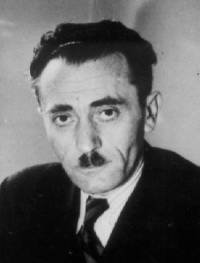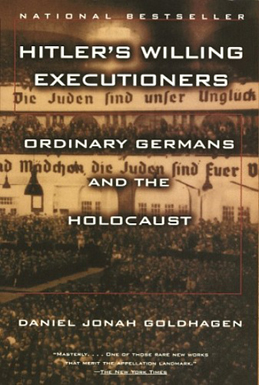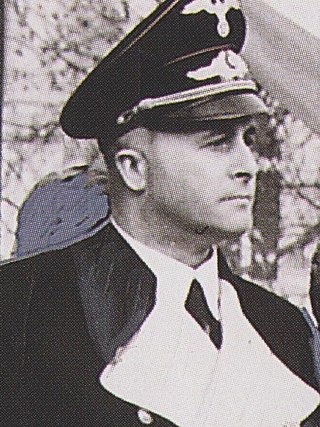Related Research Articles

Fiorello Henry La Guardia was an American attorney and politician who represented New York in the House of Representatives and served as the 99th Mayor of New York City from 1934 to 1946. He was known for his irascible, energetic, and charismatic personality and diminutive, rotund stature. A liberal member of the Republican Party, La Guardia was frequently cross-endorsed by parties other than his own, especially parties on the left under New York's electoral fusion laws. A panel of 69 scholars in 1993 ranked him first among the ten best mayors in American history.

Kristallnacht (German pronunciation:[kʁɪsˈtalnaχt] ) or the Night of Broken Glass, also called the November pogrom(s) (German: Novemberpogrome, pronounced[noˈvɛm.bɐ.poˌɡʁoːmə] ), was a pogrom against Jews carried out by the Nazi Party's Sturmabteilung (SA) paramilitary and Schutzstaffel (SS) paramilitary forces along with some participation from the Hitler Youth and German civilians throughout Nazi Germany on 9–10 November 1938. The German authorities looked on without intervening. The euphemistic name Kristallnacht (literally 'Crystal Night') comes from the shards of broken glass that littered the streets after the windows of Jewish-owned stores, buildings, and synagogues were smashed. The pretext for the attacks was the assassination of the German diplomat Ernst vom Rath by Herschel Grynszpan, a 17-year-old German-born Polish Jew living in Paris.

Julius Streicher was a member of the Nazi Party, the Gauleiter of Franconia and a member of the Reichstag, the national legislature. He was the founder and publisher of the virulently antisemitic newspaper Der Stürmer, which became a central element of the Nazi propaganda machine. The publishing firm was financially very successful and made Streicher a multi-millionaire.

Szmul Mordko Zygielbojm was a Polish socialist politician, Bund trade-union activist, and member of the National Council of the Polish government-in-exile.

Walter Karl Ernst August von Reichenau was a German Generalfeldmarschall in the Heer (Army) of Nazi Germany during World War II. Reichenau commanded the 6th Army, during the invasions of Belgium and France. During Operation Barbarossa, the invasion of the Soviet Union, he continued to command the 6th Army as part of Army Group South as it captured Ukraine and advanced deep into USSR.

The Madagascar Plan was a plan proposed by the Nazi German government to forcibly relocate the Jewish population of Europe to the island of Madagascar. Franz Rademacher, head of the Jewish Department of the German Foreign Office, proposed the idea in June 1940, shortly before the Fall of France. The proposal called for the handing over of control of Madagascar, then a French colony, to Germany as part of the eventual peace terms.
Alfred Wiener was a German Jew who dedicated much of his life to documenting antisemitism and racism in Germany and Europe, and uncovering crimes of Germany's Nazi government. He is best remembered as the founder and long-time director of the Wiener Library.
In the decades since the Holocaust, some national governments, international bodies and world leaders have been criticized for their failure to take appropriate action to save the millions of European Jews, Roma, and other victims of the Holocaust. Critics say that such intervention, particularly by the Allied governments, might have saved substantial numbers of people and could have been accomplished without the diversion of significant resources from the war effort.

Jewish resistance under Nazi rule took various forms of organized underground activities conducted against German occupation regimes in Europe by Jews during World War II. According to historian Yehuda Bauer, Jewish resistance was defined as actions that were taken against all laws and actions acted by Germans. The term is particularly connected with the Holocaust and includes a multitude of different social responses by those oppressed, as well as both passive and armed resistance conducted by Jews themselves.

The Blue Police, was the police during the Second World War in the General Government, semicolonial entity on a territory of German-occupied Poland. Its official German name was Polnische Polizei im Generalgouvernement.

The Vel' d'Hiv' Roundup was a mass arrest of Jewish families by French police and gendarmes at the behest of the German authorities, that took place in Paris on 16 and 17 July 1942. The roundup was one of several aimed at eradicating the Jewish population in France, both in the occupied zone and in the free zone.

Margin for Error is a 1943 American drama film directed by Otto Preminger. The screenplay by Lillie Hayward and Samuel Fuller is based on the 1939 play of the same title by Clare Boothe Luce.

Hitler's Willing Executioners: Ordinary Germans and the Holocaust is a 1996 book by American writer Daniel Goldhagen, in which he argues that the vast majority of ordinary Germans were "willing executioners" in the Holocaust because of a unique and virulent "eliminationist antisemitism" in German political culture which had developed in the preceding centuries. Goldhagen argues that eliminationist antisemitism was the cornerstone of German national identity, was unique to Germany, and because of it ordinary German conscripts killed Jews willingly. Goldhagen asserts that this mentality grew out of medieval attitudes rooted in religion and was later secularized.
The Shomrim Societies are fraternal organizations of Jewish members of police departments, such as the New York City Police Department and the Chicago Police Department.
Responsibility for the Holocaust is the subject of an ongoing historical debate that has spanned several decades. The debate about the origins of the Holocaust is known as functionalism versus intentionalism. Intentionalists such as Lucy Dawidowicz argue that Adolf Hitler planned the extermination of the Jewish people as early as 1918, and personally oversaw its execution. However, functionalists such as Raul Hilberg argue that the extermination plans evolved in stages, as a result of initiatives that were taken by bureaucrats in response to other policy failures. To a large degree, the debate has been settled by acknowledgement of both centralized planning and decentralized attitudes and choices.

Hermann Ahlwardt was a writer, a member of the Reichstag and a vehement antisemite.

The Holocaust in Belgium was the systematic dispossession, deportation, and murder of Jews and Roma in German-occupied Belgium during World War II. Out of about 66,000 Jews in the country in May 1940, around 28,000 were murdered during the Holocaust.
During the German occupation of Poland, citizens of all its major ethnic groups collaborated with the Germans. Estimates of the number of collaborators vary. Collaboration in Poland was less institutionalized than in some other countries and has been described as marginal, a point of pride with the Polish people. During and after the war, the Polish government in exile and the Polish resistance movement punished collaborators and sentenced thousands of them to death.

On February 20, 1939, a Nazi rally took place at Madison Square Garden, organized by the German American Bund. More than 20,000 people attended, and Fritz Julius Kuhn was a featured speaker. The Bund billed the event, which took place two days before George Washington's Birthday, as a pro-"Americanism" rally; the stage at the event featured a huge Washington portrait with swastikas on each side.

Dietrich Wilhelm Bernhard von Jagow was a German naval officer, politician, SA Obergruppenführer and diplomat.
References
- ↑ New York Grudgingly Opens the Door. Manny Fernandez. New York Times, September 24, 2007.
- ↑ "Police Detail Made Up Solely of Jews Will Guard the German Officials Here". The New York Times. 17 November 1938. p. 9.
- ↑ "Eggs for Herr Ahlwardt". The New York Times. 13 December 1895. p. 2.
- ↑ "Reich Press Keeps Up Attacks on America". The New York Times. 25 November 1938. p. 10.
- ↑ Policemen Suicides. Time, May 20, 1940
- ↑ "Finkelstein is Buried". The New York Times. 6 May 1940. p. 9.
- ↑ "Captain of Police, Accused, Ends Life". The New York Times. 4 May 1940. p. 32.